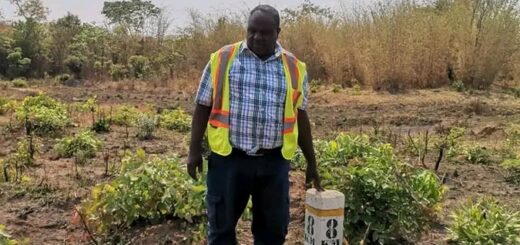Educating Zambia’s future through Early Childhood Development (ECD)
Notice: Undefined index: catFilterList in /home/zambi/public_html/wp-content/plugins/wp-likes/api.php on line 243
By Fulman Mukobeko and Derrick Sinjela
A range of scientific findings suggest that the early years of a child are critical in the formation of intelligence, personality, and social behavior. Investment in early child development provides greater returns through increased enrollment, retention, achievement, and completion of primary school level. This also contributes to Millennium Development Goals 2 and 3 as well as Education for All (EFA) objectives.
However, only 6 percent of children aged between 36 to 59 months are enrolled in pre-schools in Zambia and only 17.1 percent of new entrants to grade one in 2007 had pre-school experience.
There are no Government supported ECD centres in the country.
The few existing centres are supported by development partners. Urban provinces have the highest rates of new school entrants with prior early childhood education. The rates for Lusaka and Copperbelt Provinces are the highest in the country with 51.4 percent (2007).
The lowest proportion of new entrants with early childhood experience is Western Province with 2.2 percent (2007). Until an integrated model of service provision for children aged 0- to 8-years-old is developed in Zambia, the country’s children will continue to receive inadequate early childhood care services.
Increased poverty level at household level is making it impossible for children to have access to education. Our news crew interviewed 7-year-old Mary who said she is unable to go to school because her parents are destitute.
“Instead of being in school, I am always at the market selling vegetables,” explained Mary.
A Lusaka based teacher Fresher Siwale laments that early education is not viable in Zambia because of poor planning by Government.
Mr. Siwale says Government has no statistics of how many children are in the country and out of those how many are in school.
“Early Childhood Education will not be completely attainable if government does not go back to basics,” observed Siwale.
The National Civic Forum for Quality Education Executive Director Aaron Chansa says while efforts by Government to improve early child education, a lot more need to be done.
“ Government should maximize on teacher enrollment programme to improve on teacher pupil ratio,”advised Aaron Chansa.
Zambia National Education Coalition (ZANEC) Executive Director Manyango said budgetary allocation in the education sector child increase to make early child education a reality.
Manyoga says 20 percent of the national budget should go to education because it is cornerstone of development.
She says this should include teachers’ personal emoluments if they can be motivated to give quality education to children.
Manyango said Government should ensure that it employs a lot of teachers in the next budget
Issue
The concept of ECD centres is still relatively new in Zambia and as such limited importance is given to sending children to the ECD centres in their early years of life. There is insufficient human resources and capacity to effectively coordinate early childhood programmes. The national ECD curriculum frameworks and policies are in a draft form. ECD is not yet seen as a priority by many cooperating partners and therefore attracts limited resources. As ECD as a programme does not belong to any one specific ministry, it is a challenge to coordinate with relevant line ministries. There is also general lack of infrastructure, curriculum, and materials for a holistic ECD initiative.
Action
- Development of ECD policy, strategy, early learning and development standards, and curriculum and assessment frameworks.
• Building systems and institutional capacity to support the coordination mandate of ECD within the Ministry of Education (MoE) and frontline NGOs working with children.
• Supporting the establishment of community-based ECD sites for the most vulnerable girls and boys, with active parental involvement and monitoring and supervision by local education authority boards and community-based organizations.
• Building and strengthening caregivers’ capacities to provide child centered, gender-responsive, and age-appropriate stimulation and learning opportunities for 0-8 year-olds. While the 3-8 year age groups are the primary target for school preparedness, through cognitive, self-help, and socialization skills development, the programme will also support the 0-3 year-olds to benefit from enhanced parenting skills in families, child health care centers, and early stimulation activities.
Impact
- In collaboration with UNICEF’s East and Southern Africa Regional Office (ESARO), UNICEF Zambia supported the Ministry of Education to draft the national ECCDE curriculum as part of training outcomes for curriculum specialists. In addition, financial and technical support was provided towards the development of the ECCDE component of the MoE 2009-2015 Strategic Plan.
• Continued advocacy and technical support resulted in the adoption of a new Curriculum Framework for ECCDE and in the development of an ECCDE Policy (currently awaiting Cabinet approval).
• Child Assessment tools and pre-school teachers training guides have been developed to improve the quality of service delivery in ECCDE institutions.
• Water and sanitation facilities have improved in 15 ECCDE centres and communities have been trained on child care with focus on diarrhea and cholera prevention.
• ECCDE resource materials have been developed with participation from five technical and vocational skills development institutions.
• Six new community-based ECCDE centres were supported in Mansa, Mwense, and Samfya districts of Luapula province. Parent ECCDE committees were trained on the basic philosophy of Community-led ECCDE initiatives.
UNICEF’s Country Programme 2011-15
Under the new UNICEF country programme 2011-2015, Early Childhood Development will be a key focus area. UNICEF will continue its support for building capacity of MoE to develop a viable pre-primary education sub-sector and for increasing access to early learning services among the 4 to 6 year olds, especially those in under-served rural districts where less than 10 per cent of grade 1 entrants have early learning experience.
EXPECTED RESULTS of UNICEF COUNTRY PROGRAMME ON EARLY CHILDHOOD DEVELOPMENT, 2011-2015:
Children’s access to early learning and development increased by 15 per cent in target provinces by 2015.






















